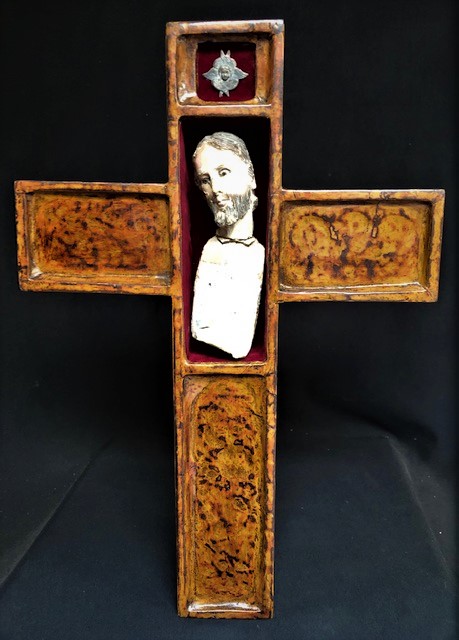Christian Contemplation And Meditation: What Is The Difference?

“For He Shall Give His Angels Charge Over You” by Jim Baker
What is the difference between Christian meditation and contemplation? It’s a tricky question, complicated and confused by the fact that words like meditation and contemplation are used in a variety of ways. Below is a brief summary of several respected definitions.
Christian Meditation and Contemplation Defined
The Catechism of the Catholic Church states that, “the Christian tradition comprises three major expressions of the life of prayer: vocal prayer, meditation, and contemplative prayer.” It defines meditation and contemplation as follows:
Meditation: An exercise and a form of prayer in which we try to understand God’s revelation of the truths of faith and the purpose of the Christian life, and how it should be lived, in order to adhere and respond to what the Lord is asking.
Contemplation: A form of wordless prayer in which mind and heart focus on God’s greatness and goodness in affective, loving adoration; to look on Jesus and the mysteries of his life with faith and love.
So, we see that for Catholics meditation is a cognitive exercise — prayerfully seeking God; whereas contemplative prayer sets aside that kind of mental effort, seeking instead a wordless, loving adoration of Christ and His love.
Put another way: in meditation we think and talk; in contemplation we rest our thoughts and words and simply love God and respond to God’s love.
Noted contemplative speaker, writer, and author James Finley puts it like this:
Meditation is prayerfully reflecting on things, on Scripture, on spiritual writings. It is a discursive inner dialogue with God; praying using thoughts and images.
Contemplation is resting in the presence of God beyond talking, thought, and images; not thinking of anything, wordlessly resting in God’s infinite love.
John of the Cross described the difference between meditation and contemplation by saying:
“The difference between these two conditions of the soul is like the difference between working, and enjoyment of the fruit of our work; between receiving a gift, and profiting by it; between the toil of travelling and the rest of our journey’s end”.
Mattá al-Miskīn, an Oriental Monk has said:
Meditation is an activity of one’s spirit by reading or otherwise, while contemplation is a spontaneous activity of that spirit. In meditation, man’s imaginative and thinking power exert some effort. Contemplation then follows to relieve man of all effort. Contemplation is the soul’s inward vision and the heart’s simple repose to the love of God.
For many Christians, meditation serves as a foundation on which the contemplative life can begin. John of the Cross says you are ready to move from meditation to contemplation when you go to your place of prayer and you open the Scriptures and you notice three things:
- The realization that you are no longer satisfied and nurtured as you once were by discursive prayer and reflective meditation.
- The realization you aren’t spiritually nurtured by anything else either.
- You have difficulty in concentrating and staying focused on prayer and reflective meditation.
In summary, in meditation the mind and imagination and other faculties are actively employed in an effort to gain a deeper understanding of Scripture, God’s love, and our relationship with God. In contemplative prayer, this activity is curtailed, so that contemplation has been described as sitting and listening deeply to God, a silent gaze, a wordless love and adoration, recognizing that God comes to us in many ways, often at a level deeper than the threshold of our conscious awareness.
Posted on July 28, 2020




















